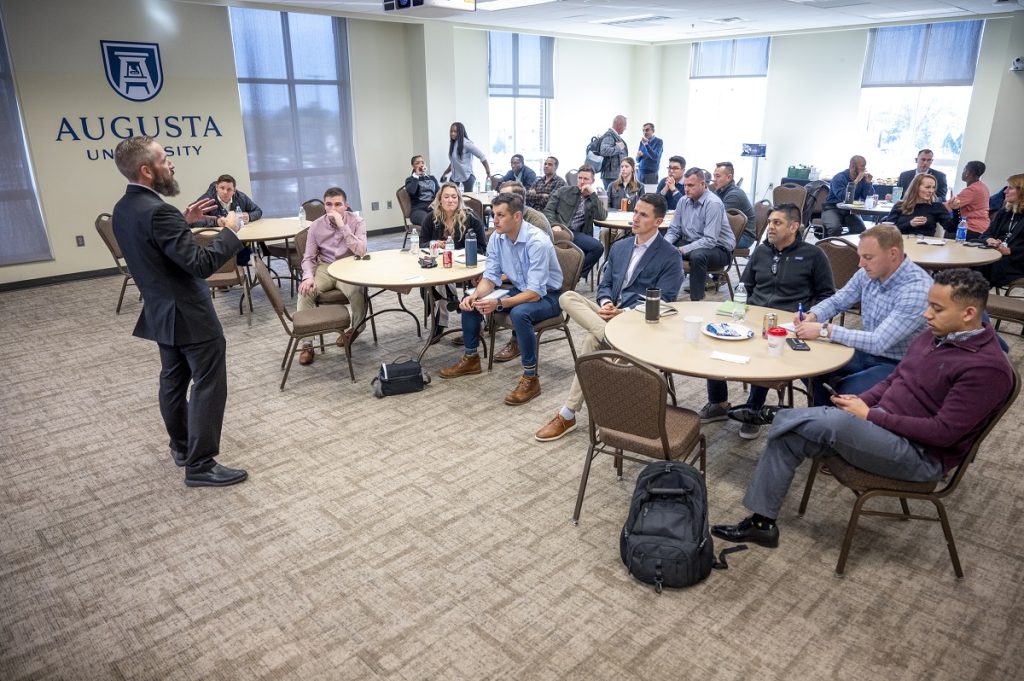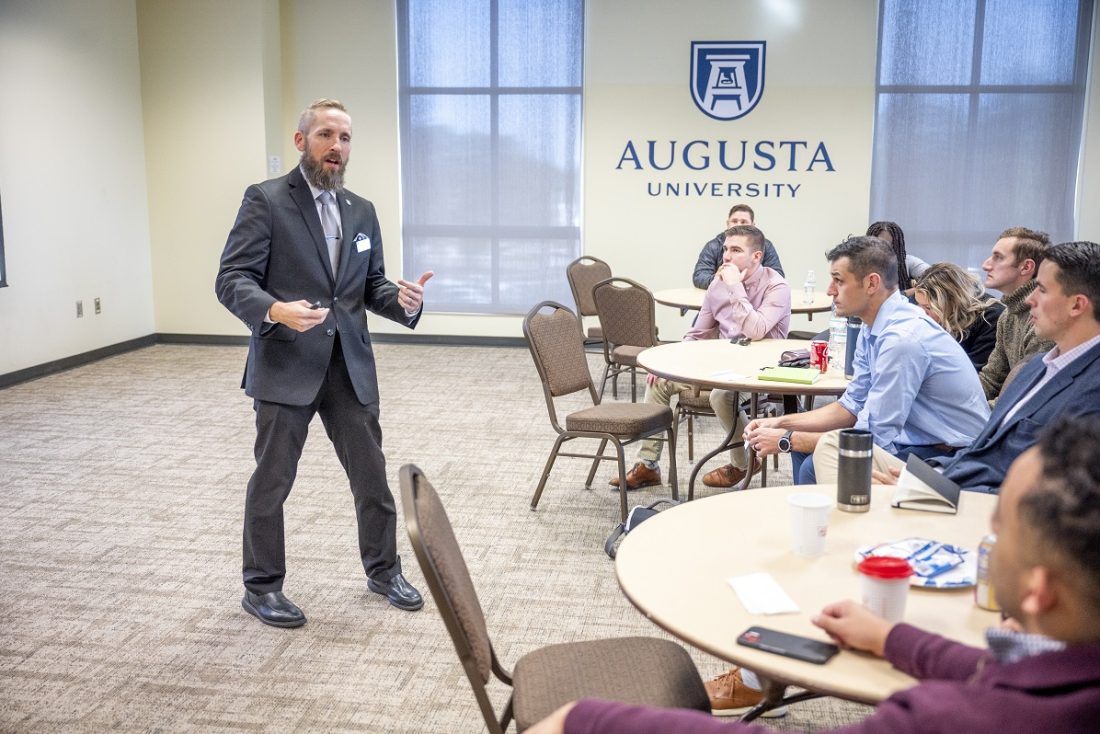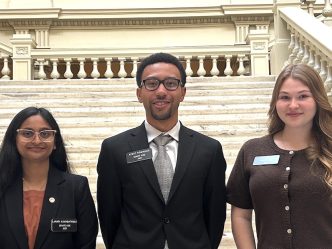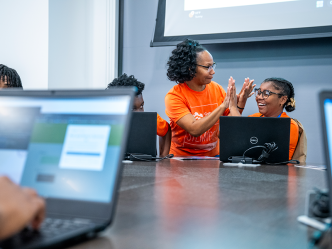In a world where information warfare perpetrated by other countries is playing a greater role in the United States every day, Augusta University and the U.S. Army Cyber Center of Excellence recently came together for a one-day conference.
During the event, professors from the Master of Arts in Intelligence and Security Studies program, part of the Pamplin College of Arts, Humanities, and Social Sciences, led conversations around their research on what other countries are attempting to do and what the U.S. could be doing when it comes to “deep fakes” and information warfare.
“We’re just making the CSRA stronger. We’re letting the CSRA know what the dangers are out there.”
Craig Albert, PhD, program director of MAISS
Craig Albert, PhD, program director of MAISS, said the day was a good chance to instill their knowledge in the students in the U.S. Army Cyber Captains Career course. In turn, meetings of this sort bolster the relationship between Augusta University and the U.S. Army.
“We’re hoping this has a positive influence on United States Army,” said Albert. “We’re hoping it has a positive influence on the faculty, staff and students at Augusta University and then hopefully become something broader and larger for the CSRA community. Hopefully it will turn eventually nationwide to really help folks understand the importance of social media influence operations and how they exist and what we can do to help defend ourselves against outside threats.”
For some of the students, this is all relatively new in their studies, and the more voices they hear about the subject, the better it is for everyone.
“It’s such a new subject, and there’s lots of research being done,” said Courtney Sullivan, a student at the U.S. Cyber Center of Excellence. “I think the pros are it’s starting to make us think more and more, which is something we do in the military every day. Those thoughts are going to help you understand better.”
“We can benefit from the research and the funding they have to offer. This is really a great partnership to bring a team and a collaborative effort to cyber solutions,” added Rob Moretz, another student attending the conference.

Artificial intelligence and social media were a focus of a couple of the sessions from the conference. MAISS professors have conducted research on the specific impact of China’s and Russia’s use of social media, and they say it is eye-opening.
“It’s terrifying to me these deep fakes exist and that so many people are on TikTok and other social media sites without understanding why it’s a national security threat, or they don’t understand necessarily there’s an algorithm that’s built in to persuade what they think about different political and social in the United States,” said Albert.
Identifying there is a threat is one thing, now the challenge is finding a way for academics, industry leaders and the military to recognize these deep fakes, Albert added.
While there is plenty of concern, there is also a lot of good coming from artificial intelligence. From tracking health issues to enhancing artwork and even something as simple as giving you directions are examples of AI being used in a positive way.
But Albert added you have to weigh the benefits with the cost and at least be aware that AI can give people a negative understanding of the world.
He’s also hopeful conferences like this one will bolster everyone’s understanding of the dangers out there.
“We’re just making the CSRA stronger. We’re letting the CSRA know what the dangers are out there. We’re hopefully creating more jobs by having programs like Intelligence and Security Students here at Augusta University. People can enroll in the program, understand this stuff and go out into Augusta, get more jobs, focus in the influence or persuasion arena and really help defend and protect the United States,” said Albert.
 Augusta University
Augusta University




